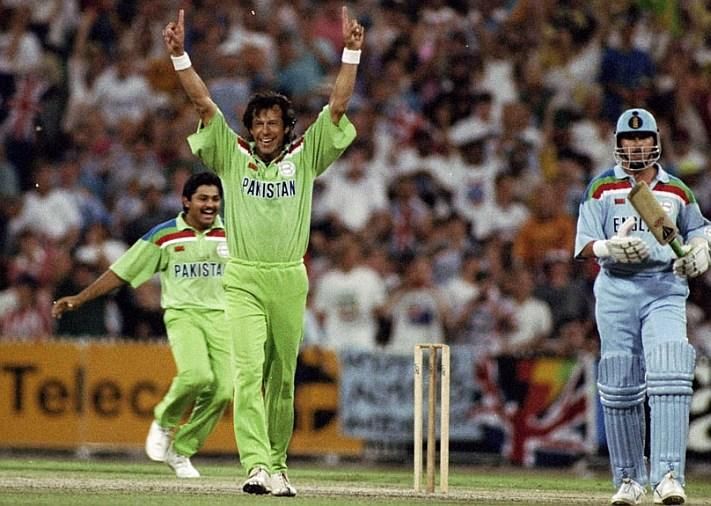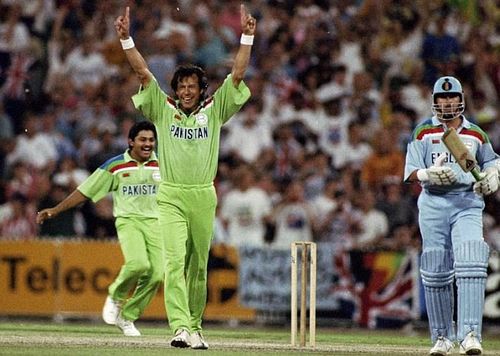
Imran Khan's debut in International cricket

Pakistan’s charistmatic former cricket captain Imran Khan, best remembered for leading the Pakistan cricket team to the World Cup title in 1992, made his debut for Pakistan as a teenager at the age of 19. The Pakistan Cricket Team toured England for three Test matches in June 1971. Imran Khan was selected as a bowling all-rounder in his very first series for Pakistan. Imran generated good pace with the ball and his raw talent as a sportsperson was there for all to see. In the first Test at the Edgbaston Cricket Ground in Birmingham, Imran’s contribution was minimal and his debut was largely overshadowed by a magnificent double-century from Pakistan batsman Zaheer Abbas, who ended up scoring 274 runs. Imran faced just 5 balls in the Pakistan first innings, and bowled a combined 28 overs in the match but went wicketless. The Edgbaston Test match ended in a draw.
Click here for live cricket score
Three years later, in August 1974, Imran played his first One Day International match for Pakistan. England batted first but were unable to post a total beyond 250, ending their innings at 244-4. Imran was brought on as the second change bowler for Pakistan. He had a quiet game with the ball going for 36 runs from his 10 overs, but was unable to pick up a wicket in the game. Pakistan’s batsmen completed the chase with minimal of effort, reaching their target of 246 in just the the 43rd over, led by a majestic century from opening batsman Majid Khan.
It is widely agreed that Imran Khan is the finest cricket player to come out of Pakistan. Imran was one of the four all-rounders of the 1980s who transformed the way cricket teams were selected and he left a mark on the game of cricket for bringing in his unique all-round abilities and captaincy attributes onto the cricket field. For the most part of his career, Imran has opened the bowling for Pakistan. But Imran has also scored an impressive 7516 runs in his international cricket career, that includes 37 half-centuries, and a further 7 centuries in Test and ODI cricket combined.